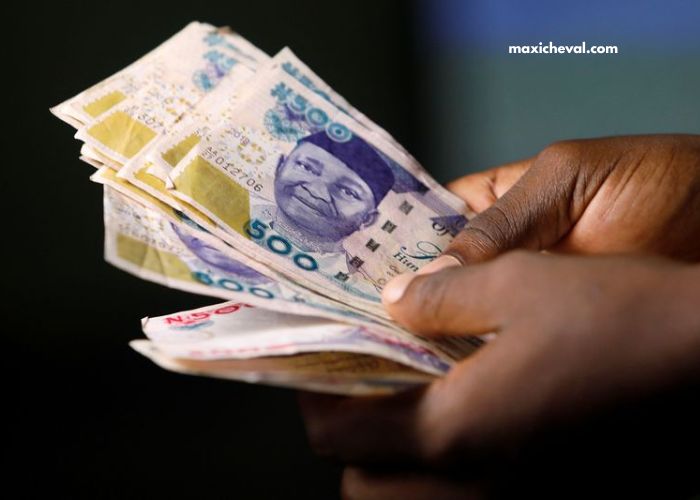When it comes to currency exchange in West and Central Africa, one of the most common conversions is between the US dollar and the CFA franc. This is especially important for businesses, travelers, and investors who operate within the Economic and Monetary Community of Central Africa (CEMAC) or the West African Economic and Monetary Union (WAEMU). The 1 Dollar en Cfa rate is essential for understanding how much purchasing power a dollar holds in these regions and how it impacts the economy, consumer behavior, and international trade. This article will explore the significance of 1 Dollar en Cfa, how to convert between the two currencies, and the broader economic implications of this exchange rate.
Understanding the current exchange rate of 1 Dollar en Cfa is vital for individuals and businesses that deal in both US dollars and CFA francs. Whether you’re an international traveler, investor, or just someone interested in currency exchange, knowing how to navigate the conversion is crucial. The article will break down the factors that influence the 1 Dollar en Cfa rate and give you tips on how to stay informed about fluctuations in the market.
What Is the Current Exchange Rate of 1 Dollar en Cfa?
The exchange rate between the US dollar and CFA francs can fluctuate based on a variety of factors, including global economic conditions, political stability, and trade balances between the countries involved. As of recent data, the exchange rate for 1 Dollar en Cfa tends to hover around 600 to 650 CFA francs for every 1 US dollar. However, this rate is not static and can shift due to external factors like inflation, changes in oil prices, or monetary policy decisions by the Central Bank of West African States (BCEAO) or the Bank of Central African States (BEAC).
To understand the exchange rate of 1 Dollar en Cfa, it’s important to keep track of currency markets and updates provided by official financial institutions. The daily or weekly fluctuations can be significant, especially for businesses or individuals who engage in international trade or remittances. By staying updated on the latest exchange rate of 1 Dollar en Cfa, you can make better decisions about when to convert your money for travel, investment, or other purposes.
How Does the Exchange Rate of 1 Dollar en Cfa Affect the Economy?
The exchange rate of 1 Dollar en Cfa has a profound impact on the economies of countries that use the CFA franc as their currency. These economies, which span across 14 countries in Africa, are often linked to global markets via trade with countries like the United States, China, and the European Union. A strong US dollar, for example, can make imports more expensive in CFA francs, driving up the cost of living in these regions.
On the flip side, a weaker dollar in relation to the 1 Dollar en Cfa rate can make imports more affordable, potentially boosting consumer spending. However, it may also lead to a reduction in export revenue, as African countries may find it harder to sell goods at competitive prices. The 1 Dollar en Cfa rate is therefore not just a number; it is an indicator of how global currency movements can influence local economies in Africa, especially in terms of inflation, employment, and the balance of trade.
What Are the Factors That Influence the 1 Dollar en Cfa Rate?
Several factors play a role in determining the exchange rate of 1 Dollar en Cfa. Among the most significant are:
- Monetary Policy Decisions: The Central Bank of West African States (BCEAO) and the Bank of Central African States (BEAC) set the monetary policy for countries using the CFA franc. Their decisions on interest rates, inflation targets, and foreign exchange reserves directly affect the value of the CFA franc and the 1 Dollar en Cfa rate.
- Inflation Rates: High inflation in the CFA countries can lead to a depreciation of the CFA franc relative to the US dollar, causing the 1 Dollar en Cfa exchange rate to rise.
- Oil Prices: Since many CFA countries are involved in oil production or dependent on oil imports, fluctuations in global oil prices can influence the 1 Dollar en Cfa rate. When oil prices rise, countries with oil exports tend to see their currencies strengthen, lowering the value of 1 Dollar en Cfa.
- Global Economic Conditions: Economic crises, political instability, and changes in the global market can also have a profound effect on the 1 Dollar en Cfa exchange rate. For instance, if the US economy is performing poorly, the dollar may weaken, affecting the 1 Dollar en Cfa rate in the process.
- Demand for CFA Francs: The demand for CFA francs, driven by trade and investment in the region, can also affect the exchange rate. When demand for goods and services from CFA countries rises, so too does the demand for the CFA franc, which could lead to a stronger currency and affect the 1 Dollar en Cfa rate.
How Do You Convert 1 Dollar en Cfa?
Converting 1 Dollar en Cfa is relatively simple if you have access to an up-to-date exchange rate. Online currency converters and mobile applications can help you calculate how many CFA francs you’ll receive for every dollar you exchange. If you’re traveling to an African country that uses the CFA franc, it’s important to know the current exchange rate before you exchange money at a bank or a currency exchange kiosk.
If you’re engaging in business or financial transactions, you might also consider locking in a rate for a longer period through forward contracts, especially if you expect significant fluctuations in the 1 Dollar en Cfa rate. By doing this, you can avoid potential losses from sudden changes in currency values. It’s also essential to understand the fees and charges that come with currency exchanges, as these can sometimes impact the value of your conversion, reducing the amount of CFA francs you receive.
What Are the Benefits of Monitoring the 1 Dollar en Cfa Rate?
For individuals and businesses involved in cross-border trade or international investments, monitoring the 1 Dollar en Cfa rate is crucial for maximizing financial efficiency. Knowing the best times to exchange money, invest, or transfer funds can lead to significant cost savings, especially when dealing with large sums of money. By tracking fluctuations in the 1 Dollar en Cfa exchange rate, you can take advantage of favorable conditions for conversions, potentially securing more CFA francs for each dollar you exchange.
Additionally, by keeping an eye on the 1 Dollar en Cfa rate, you can gain insights into the broader economic trends affecting the region. For example, if the rate increases significantly, it might indicate inflationary pressure in CFA countries or a strong US dollar globally. Conversely, a decreasing rate could suggest economic growth or improving trade relations within the region.
Conclusion
In conclusion, understanding the 1 Dollar en Cfa exchange rate is vital for anyone engaged in financial activities involving the CFA franc. Whether you’re planning to travel, invest, or simply understand the regional economic trends, the rate is an important factor to monitor. By keeping track of how the 1 Dollar en Cfa rate fluctuates and the various factors that influence it, you can make more informed decisions in your personal and professional financial dealings.




